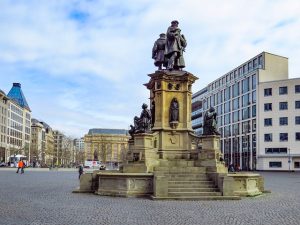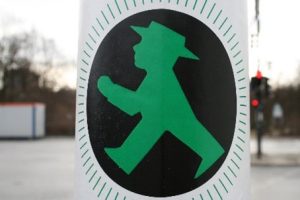アメリカ大統領トランプ氏再選!激動の世界情勢へ転換!?フランクフルトの日本人ビジネスマンの視点とは!?
アメリカ大統領トランプ氏再選!激動の世界情勢へ転換!?
NO2 フランクフルトの日本人ビジネスマンの視点とは!?
前回に続き フランクフルト在住の日本人ビジネスマンの
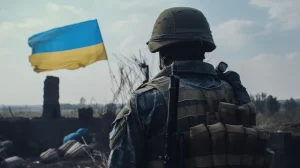 イメージ
イメージ
世界の政治・経済の情勢分析&視点です。
先日のアメリカ大統領選挙でトランプ氏が再選されましたが
ウクライナ侵攻について聞いてみました。
なお、この話は選挙の前だったので、「仮定の話として」です。
ウクライナ侵攻についての話題になると、彼は「ロシアの戦略は
アメリカ大統領選挙と深く関連しています」と指摘しました。
「トランプ前大統領が再選した場合、短期間で停戦が進む可能性が高いでしょう。
ただし、それはウクライナに妥協を強いる形で進むはずです」と彼は述べ、
ロシアが現在支配している広い地域の継続支配が停戦の条件になるだろうと
予測しました。
 イメージ
イメージ
中東情勢にも言及
続けて、中東での戦争について尋ねると、イスラエルとガザの衝突が
終息する見込みについても彼なりの見解を語りました。
「イスラエルはパレスチナ人を抑圧し、土地を確保する方向で事態を
収束させようとするでしょう。
しかし、その後は世界世論を敵に回し、これまでのような国際的支援を失う
可能性が高いですね」と分析していました。
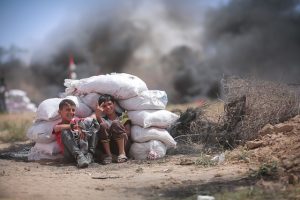 イメージ
イメージ
ドイツ国内問題とベルリン遷都
また、私が長年疑問・不思議に思っていた「ボンからベルリンへの遷都」についても
聞いてみました。
個人的には、第二次世界大戦後への反省から、終戦、平和への象徴として
敢えてベルリンからボンに首都を変えたのに、冷静終結と共に早期に
遷都したのは普通に考えて時期尚早では?」とも考えていました。
彼は「地元ドイツでも、ミュンヘンやフランクフルトへの遷都を望む声が
強かったように感じます。
私は個人的にはフランクフルトが経済の中心でもありベターかなとも
思っていました。
それでもベルリンが選ばれた理由は、私もいまだに不思議です」と笑いながら
答えました。
はやり、ドイツ国内でも不思議な遷都だったのでしょうか? 汗
答えは「歴史が教えてくれる」のでしょうか?
ベルリンの街と東西冷戦の名残
話題はベルリンの街の様子にも及びました。私は過去にベルリンを訪れた際、
中央駅近くにあるエアロフロートの大看板が印象的だったことを話すと、
彼はこう語りました。
「西ベルリンにはもともとロシア人が多く住んでいて、
祖国との交流が深かったのです。
今でもロシア語訛りのドイツ語を話す人々が多いですね。」と!
この説明に、私は「なるほど!」と納得しました。
「西ベルリンには元々沢山のロシア人が生活していたのだ」と
言う事は 知らなかったので、大変勉強になりました。
日本は島国なので、国際的なつながり、交流はあまり理解されませんが
「当然、両国の間では、長い歴史の中で様々な交流は深く、
経済的なつながりは強く存在するのだろう」と思いました。
歴史を超えた国際的交流
今回の会話を通じて、戦争や政治が国家間の関係に与える影響の大きさを
改めて実感しました。
特にヨーロッパ各国は世界情勢に敏感に反応する感じです。
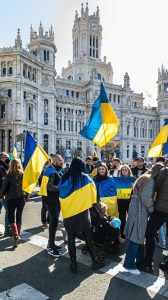
しかし、国を超えた人々の交流や、日常生活の中で共有される価値観が、
時には政治をも超える力を持つことも忘れてはならないと感じます。
次回のブログでは、冷戦終結後の東西ベルリンの少しほっとするトピックを
お届けする予定です。どうぞお楽しみに!
 image
image
Trump Reelected as U.S. President!
A Turning Point Toward a Turbulent Global Landscape!?
No. 2: The Perspective of a Japanese Businessman in Frankfurt
Continuing from the previous article,
we delve into the analysis and viewpoints on global political and
economic affairs from a Japanese businessman residing in Frankfurt.
In the recent U.S. presidential election,
Donald Trump was reelected.
We asked for his thoughts on the Ukraine invasion.
It should be noted that this discussion took place before
the election,
so it was framed as a “hypothetical scenario.”
When the topic turned to the invasion of Ukraine,
he pointed out, “Russia’s strategy is deeply intertwined with
the U.S. presidential election.”
He added, “If former President Trump is reelected,
there is a high possibility of a ceasefire being achieved in
for a short period.
However, this would likely occur through a compromise imposed on Ukraine.”
He predicted that maintaining Russian control over the vast territories
it currently occupies would likely be a condition for the ceasefire.
 image
image
Insights on the Middle East Situation
Next, we asked him about the wars in the Middle East,
including his perspective on the prospects of ending the Israel-Gaza conflict.
“Israel will likely try to resolve the situation by
oppressing the Palestinian people and
securing more land,”
 image
image
he remarked.
“However, this will probably result in turning global opinion against them,
leading to a loss of the international support
they’ve enjoyed so far,” he analyzed.
Domestic German Issues and the Move to Berlin
I also asked him about something
I’ve long found puzzling—the decision to move
Germany’s capital from Bonn to Berlin.
Personally, I always thought that shifting the capital
from Berlin to Bonn after World War II
was a deliberate reflection on the past,
symbolizing peace and the end of war.
So, wasn’t it a bit premature to move it back to Berlin
after the end of the Cold War?
He responded, “Even within Germany,
I feel there were strong calls for relocating
the capital to Munich or Frankfurt.”
“Personally, I thought Frankfurt, as the economic center,
would have been a better choice,” he added.
“But I still don’t fully understand why Berlin was ultimately chosen,”
he admitted with a laugh.
Could it be that the move to Berlin was just as
puzzling to people in Germany?
Perhaps the answer lies in history.
The City of Berlin and the Legacy of the Cold War
Our conversation also touched on the current state of Berlin.
When I mentioned that I had once visited Berlin and
was struck by the large Aeroflot billboard near the central station,
he explained:
“West Berlin has historically been home to a large Russian population,
with deep ties to their homeland.”
“Even today, there are many people here who
speak German with a Russian accent,” he said.
Hearing this, I found myself thinking,
“Ah, that makes sense!”
I hadn’t realized that so many Russians had lived in West Berlin.
This was an eye-opening piece of history for me.
Japan, being an island nation, often struggles to fully grasp
the nature of international ties and exchanges.
However, it’s only natural that a long history of interaction between two nations
would foster deep cultural and
economic connections.

International Exchange Beyond History
This conversation made me once again realize the significant impact
that war and politics have on relations between nations.
European countries seem acutely sensitive to global developments.
At the same time, I was reminded of the importance of human exchanges and
shared values in daily life.
These connections can, at times,
transcend the power of politics.
In the next blog, I plan to share a lighter topic about
East and West Berlin after the Cold War.
Please look forward to it!
